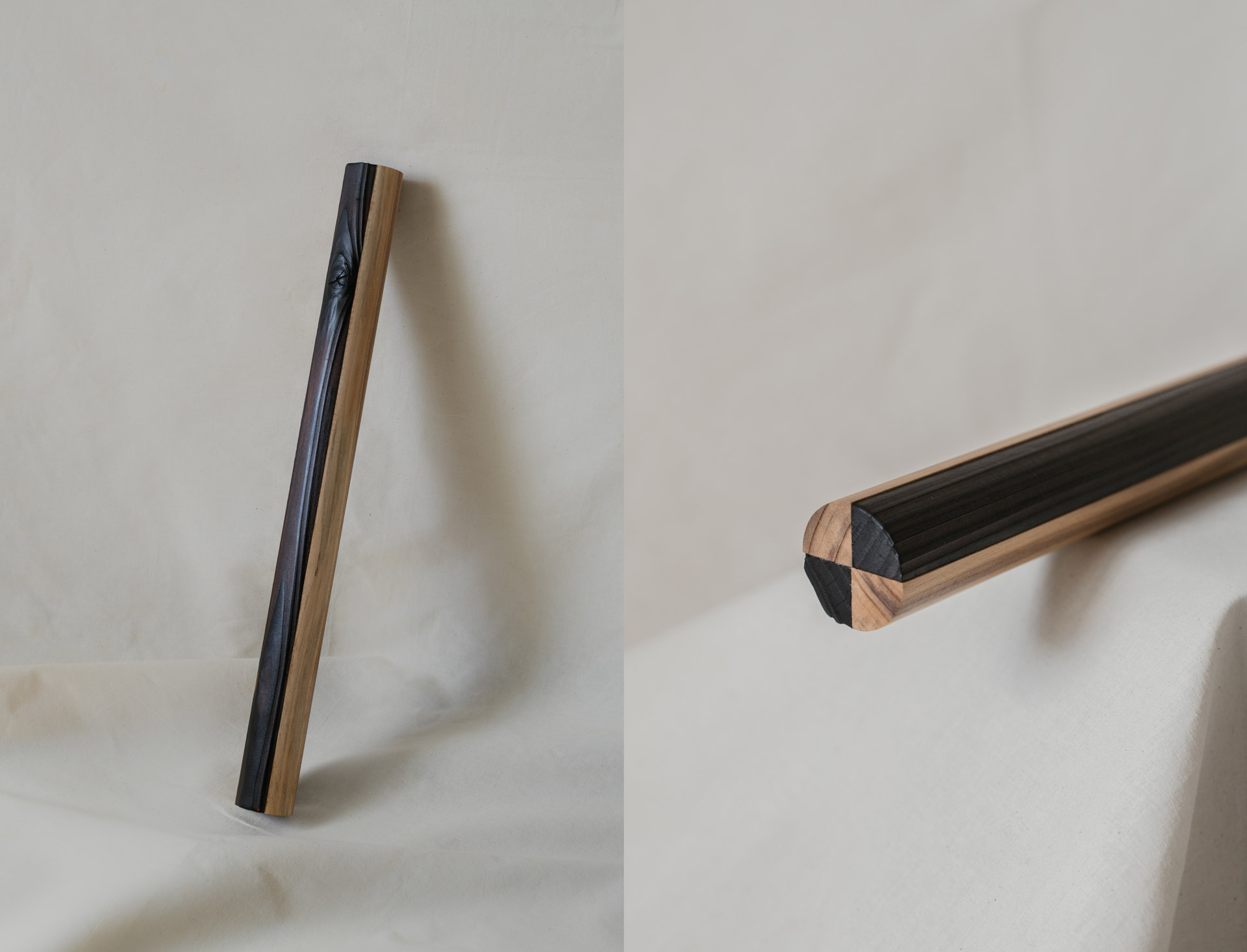Imprint







Imprint is a collection of rolling pins and boards for dough shaping. In an attempt to integrate the beauty of wood into the cooking process, where material characters resonate with everyday gestures, the series focuses on form shaping and pattern making.
The Japanese technique "Yakisugi" was the starting point. Mainly used for exterior siding and fencing on traditional houses, Yakisugi is a wood preservation method that adopts charring technique to increase the durability of wood. For the Imprint series, planks and beams are carefully selected and then burnt with a torch. The charred softer parts get removed afterward, leaving the body with distinctive texture of the wood for woodturning and assembling, which juxtaposes the blackened gravitas and the native wood color.
The subject of the design takes up references from Mediterranean cuisine culture as pasta and gnocchi are of the essence, and the outcome adopts a way for imprinting the patterns on the dough — as if re-creating a piece of bark from pastry.
Rooting the process and the material resource in a specific locality, Imprint series uses Taiwania, the one and only tree that is named after Taiwan.
For Local Ware: Cooking Edition
Curated by OROS & initial initiatives
Photo: Tsai Shi Fan
受 Local Ware: Cooking Edition 委託設計,〈Imprint〉實驗日本的燒杉工藝,將 「木材紋理」 與 「烹飪當中的手部動作」 相互連結。早期常見於西日本的傳統房屋外牆和圍欄,燒杉這項古老的技法透過高溫焚燒木材表面,以提升其堅固性與年限。在烈火的灼燒下,杉木板表皮呈現焦裂的斷塊節理,又經刷洗、上油,逐漸浮現一種亮黑如漆的色澤以及立體紋路,展現出木料的純粹質地。
一系列桿麵棍和揉麵板的設計,參考自地中海飲食文化如義大利麵和糰子(gnocchi),之中桿麵棍的三種樣式分別透過車床和拼板,使木材的原色質感和燃燒後的漆黑光澤並置;揉麵板則透過燒杉面的起伏,在光影之間呈現出木紋走向。兩者皆各自有著不同翻轉木紋的方式,當木紋印上麵皮,便彷彿以麵糰創造樹皮一般。
此次的加工與木料皆源自在地,使用台灣杉是以台灣為屬名的唯一樹種,以此將台灣與地中海兩處文化交會,契合展覽 Local Ware 在地之主題。
